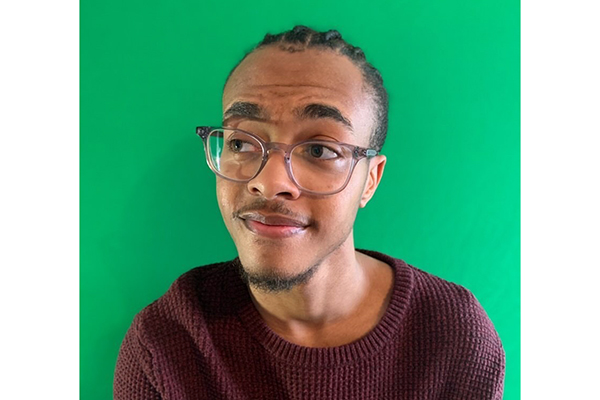Within the textbooks of his high school in Plano, Texas, Xavier Ingram noticed the absence of Black history. In January, he independently funded and launched Studio X, a company dedicated to producing his own films, the work of other students and creators of color.
The Texan spoke with the radio-television-film freshman about his creative journey and Studio X’s first film series, “The Blackstory,” which will be released later this month on YouTube as his channel debut.
The Daily Texan: What led you to pursue filmmaking?
Xavier Ingram: I remember when I was really young … I watched this movie called “Roll Bounce.” At that moment, I knew that whatever it took, I wanted to make (films). With my movies, the goal is to have an emotional impact on people in the same way that movies have impacted me. It’s one of the most powerful mediums to convey messages.
DT: What was your motivation behind creating Studio X?
XI: This has been an idea I’ve had for a really long time. I’ve always been making content on my own, and I got to the point where I wanted to create a domain for myself, where everything I create can fall under this one studio. I want Studio X to be this place of infinite possibilities, where anyone can make anything — (a studio) that’s accepting and constantly expanding.
DT: Your first series under Studio X is called “The Blackstory.” What inspired you to create this series?
XI: I’m fascinated by specifically Black history because it’s so intricate and nuanced. The simple fact is that it’s overshadowed, deliberately undermined and hidden from people. I grew up in a predominantly white school, and there were hardly any Black people there. You would find that a lot of people were ignorant because they just didn’t know stuff. I want to make Black history something that’s more accessible to all people, so that it’s entertaining to watch and not just like reading a textbook. Black history is world history. You should know what it is. If (we) do know what it is, a lot of the societal issues we face today could be solved more easily.
DT: How would you say your identity has influenced your filmmaking?
XI: Growing up, it was hard because I felt very much like an outsider. I didn’t really fit into a group, and I didn’t have too many close friends. With my film, I feel like I’m able to show myself to everybody in a way I wasn’t able to do in person. When writing scripts, filming and editing, I like to have fun and be my true nerdy self.
DT: What are some topics you’d like to cover in the future?
XI: In the future, I want to cover all different kinds of people, events and concepts. I want to do studies on more Black leaders like Angela Davis, Ida B. Wells and Ella Baker. (Some) theories I want to talk about are interracial dating, (both) the history behind that and its impact on society today, as well as gentrification, the school-to-prison pipeline and mass incarceration. (In school), everybody got taught the basic building blocks: colonization, slavery, the civil rights movement, MLK and that “racism is cured.” I feel like there are major missing pieces here.





















